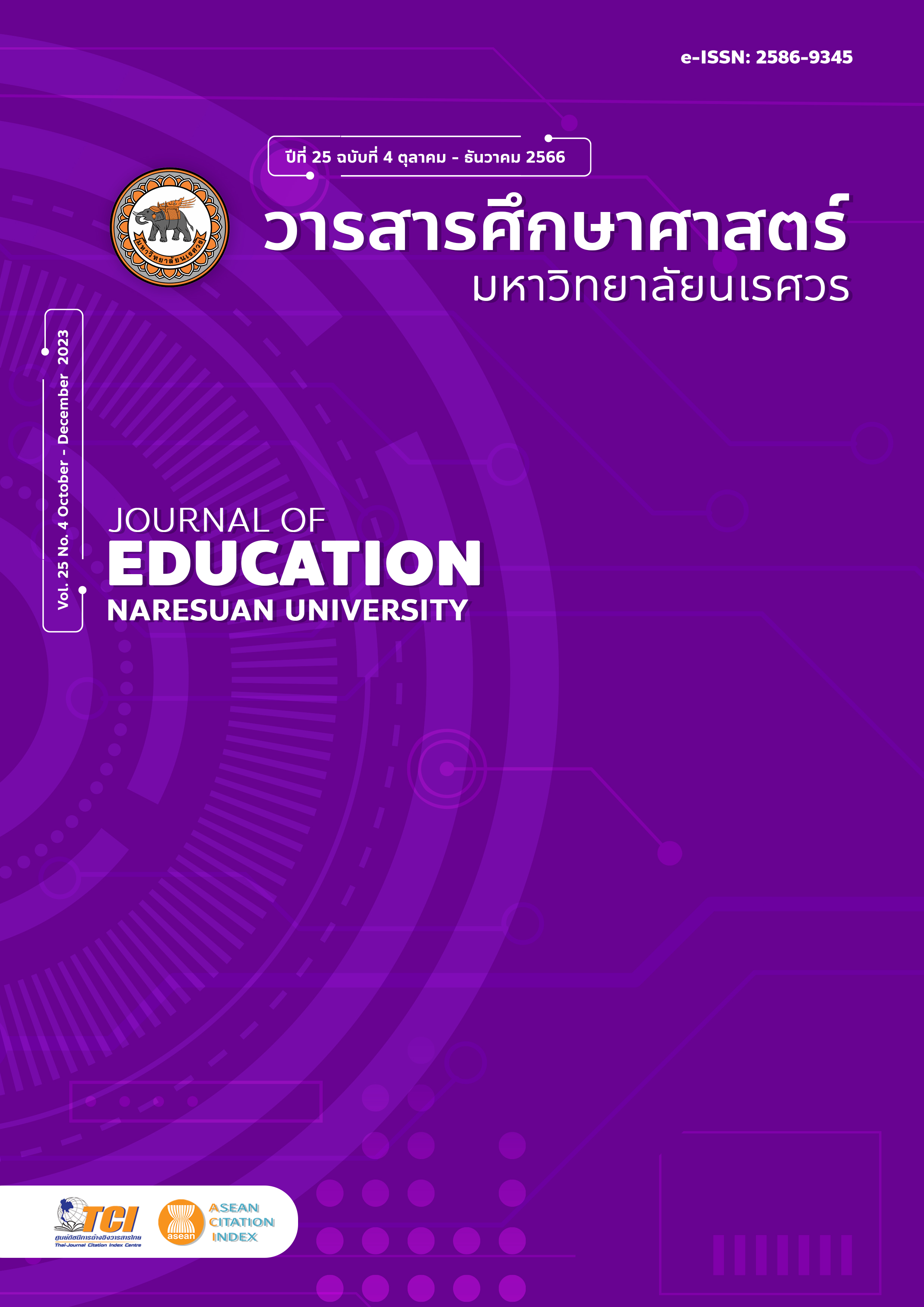THE IMPACT OF SPORTS TOURISM AND DIGITAL INTEGRATED MARKETING COMMUNICATION ON SPORTS TOURISM MANAGEMENT IN THE EASTERN ECONOMIC CORRIDOR (EEC) OF THAILAND
Main Article Content
Abstract
The purpose of this study was to determine the relationships between the impact of sport tourism and digital integrated marketing communication on the sports tourism management in the Eastern Economic Corridor (EEC) of Thailand. The mixed research method was used as 1) a quantitative method sampling with 340 peoples who living in the EEC and 2) a qualitative method comprised of in-depth interviews with 15 specialists. The data-collection tool was manage by questionnaire and interview form. The data analysis was conducted using structural equation analysis (SEM) and in-depth interviews. The results were as follows: 1) the impact of sport tourism had a direct effect on the sports tourism management model at 0.48, and digital integrated marketing communication had a direct effect on the sports tourism management model at 0.37 (chi-square = 0.08, df = 1, p-value = 0.78, RMSEA = 0.00, CFI = 1.00, GFI = 1.00, SRMR = 0.01, / df = less than 0.08). And 2) the qualitative methods found that the added value of sports tourism management model had follow the POIC principle to implement strategies and use information systems, including branding a variety of activities and community involvement as sports tourism within the EEC.
Article Details

This work is licensed under a Creative Commons Attribution-NonCommercial-NoDerivatives 4.0 International License.
The owner of the article does not copy or violate any of its copyright. If any copyright infringement occurs or prosecution, in any case, the Editorial Board is not involved in all the rights to the owner of the article to be performed.
References
Anca, T. (2008). Type and forms of tourism. Acta Universitis Danubius, 4(1), 92-103.
Brunt, P., & Courtney, P. (1999). Host perceptions of sociocultural impacts. Annals of Tourism Research, 26(3), 493-515.
CEIC DATA. (2021). Thailand Investment: % of GDP 1993 – 2021. Retrieved from https://www.ceicdata.com/en/indicator/thailand/investment--nominal-gdp
Eurobarometer. (2010). Sport and physical activity. European commission: Special Eurobarometer. Retrieved from http://ec.europa.en/public_opinion/archive/ebs/ebs_334_en.pdf
Gaffar, V., Ridwanudin, O., & Rudiani, Y. P. (2016). The role of digital marketing in sport tourism destination. Growth, 101(108.952), 99-882.
Getz, D., & Page, S. J. (2016). Progress and prospects for event tourism research. Tourism Management, 52, 593-631.
Gibson, H., Attle, S., & Yiannakis, A. (1997). Segmenting the sport tourist market: A lifespan perspective. Paper presented at Teaming for Success: A Forum on Sport Tourism. Arlington, VA.
Gibson, H. (1998). Sport tourism: A critical analysis of research. Sport Management Review, 1(1), 45-76.
Hair, J. F., Black, W. C., Babin, B. J., & Anderson, R. E. (2010). Multivariate data analysis (7th ed.). Upper Saddle River, NJ: Prentice Hall.
Hritz, N., & Ross, C. (2010). The perceived impacts of sport tourism: An urban host community perspective. Journal of Sport Management, 24(2), 119- 138.
Hujic, N., & Salihic, F. (2020). Marketing in tourism - direct marketing as marketing communications technology. Journal of Social and Technological Development, 2(1), 89-105.
Nitikasetsoontorn, S. (2015). The success factors of community-based tourism in Thailand. NIDA Development Journal, 55(2), 22-58.
Nunkoo, R., & Gursoy, D. (2012). Residents’ support for tourism: An Identity Perspective. Annals of Tourism Research, 39(1), 243-268.
Perrin, A. (2015). Social networking usage: 2005 – 2015. Retrieved from
http://www.pewinternet.org/2015/10/18/2015/Social-Networking_Usage-2005-2015
Pongprasert, S. (2015). Factors influencing sports tourism development in Thailand: A structural equation model (Doctoral dissertation). Bangkok: Faculty of Sport Science, Chulalongkorn University.
Ratanarojanakool, P. (2014). A managerial strategic model for rock climbing, ecotourism in Thailand (Doctoral dissertation). Chonburi: Faculty of Sport Science, Burapha University.
Rattanapongthara, T., Charoenkitthanalap, S., & Nawatanathi, T. (2017). Community Participation in Development of eco-tourism in Ayothaya community Phra Nakhon Si Ayutthaya Province. The Journal of Social Communication Innovation, 5(2), 8-16.
Satarat, N. (2010). Sustainable management of community-based tourism in Thailand (Doctoral dissertation). Bangkok: National Institute of Development Administration.
Schegg, R., & Stangl, B. (2017). Information and communication technologies in tourism 2017. Manhattan, NY: Springer International Publishing.
Shahzalal, M. D. (2016). An international peer-reviewed journal positive and negative impacts of tourism on culture: A critical review of examples from the contemporary literature. Journal of Tourism, Hospitality and Sports, 20, 2312-5187.
Surawattananon, N. (2019). Tourism and its role in driving the Thai economy Is a hero necessary or a real hero? Retrieved from https://www.bot.or.th/Thai/ResearchAndPublications/DocLib_/Article_29Oct2019.pdf
Taleghani, G. R., & Ghafary, A. (2014). Providing a management model for the development of sports tourism. Procedia - Social and Behavioral Sciences, 120, 289-298.
Thailand’s Ministry of Tourism and Sports. (2018). Strategic ministry of tourism and sports (2017 -2021). Retrieved from https://www.mots.go.th/ewt_dl_link.php?nid=9689
Whitburn, D., Karg, A., & Turner, P. (2020). The effect of digital integrated marketing communications on not-for-profit sport consumption behaviors. Journal of Sport Management, 34(5), 417–434.


